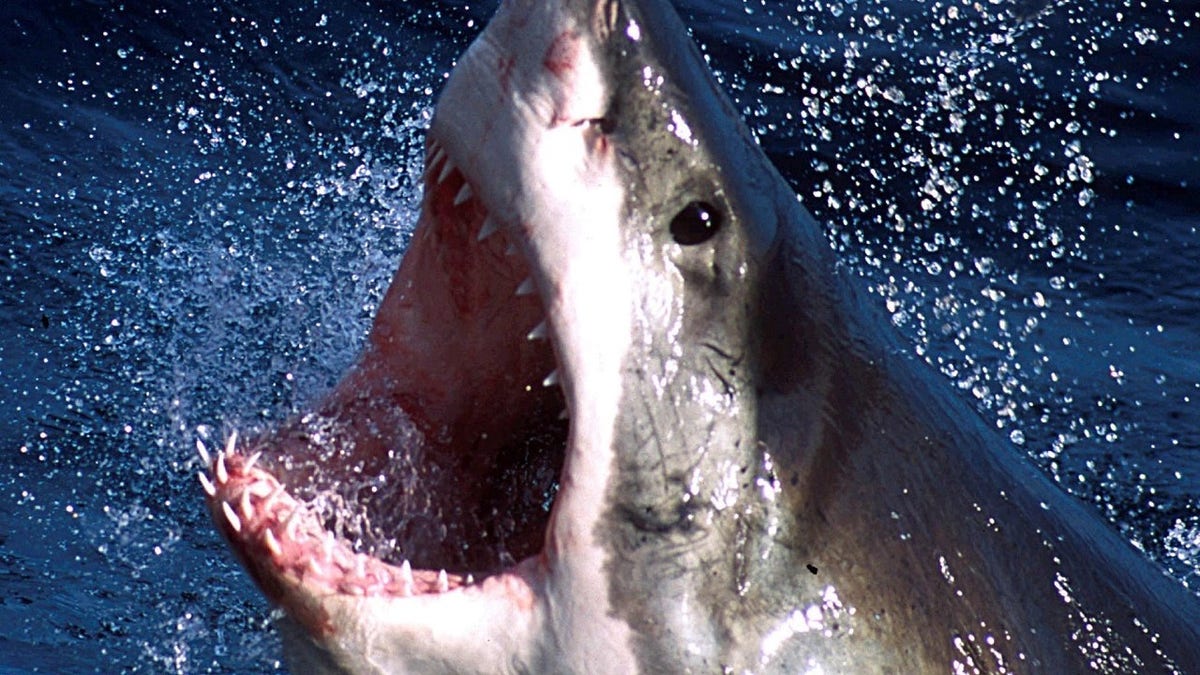
A shark, believed to be a great white, attacked a teenage girl in Australia (not pictured). She described the moment as like a scene from "Jaws." (Reuters)
Terrifying footage has captured the moment when a shark in South African waters decided to charge at a scuba diver.
The footage, which has been posted to YouTube and was taken with a GoPro camera, shows Elton Polly filming other divers swimming off the coast of Durban, South Africa. All of a sudden, one of the sharks, which is a blacktip shark, according to news.com.au, comes straight at one of the divers.
The video, which was posted on Feb. 27, has been viewed more than 160,000 times and has gone viral. Polly has posted other videos of sharks to his YouTube channel, including one of a great white shark taking on a cape fur seal.
WARNING, GRAPHIC CONTENT: MAN PUNCHES SHARK THAT WAS MAULING HIS FOOT, EXPOSING BONES AND TENDONS
The shark slams right into one of the diver's faces, knocks his mask off and pulls the regulator out of his mouth.
“The shark was startled and in an attempt to get away, it charged right into the diver’s head, knocking his mask off and the regulator from his mouth," Polly said in an interview with Newsflare, according to news.com.au.
Luckily, no one was hurt, including the shark, Polly said.
The blacktip shark is just one of many species of sharks, including one that was recently discovered after scientists searched for it for decades.
NEW SPECIES OF SHARK HAS ANCESTORS OLDER THAN DINOSAURS
Scientists recently discovered the Atlantic sixgill shark, a cousin of the sixgill sharks that live in the Indian and Pacific Oceans.
The scientists looked at 1,310 base pairs of two mitochondrial genes and found that there were enough differences to determine that the Atlantic version of the sixgill shark is different enough from those living in the Pacific and Indian oceans to be considered a different species.
Sixgill sharks have been on the planet for millions of years, with their ancestors dating back over 250 million years. By comparison, dinosaurs first appeared approximately 230 million years ago, according to the USGS.
Fox News' Chris Ciaccia contributed to this report.
